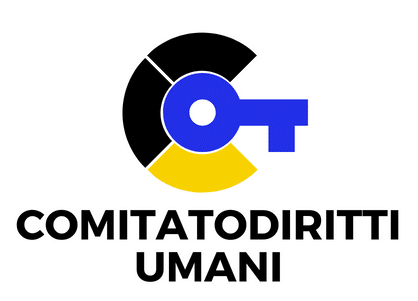Can Machine Learning Improve Pesticide Management in Sustainable Farming?

The Intersection of Agriculture and Technology
In a world where technology and agriculture intersect, the possibilities for growth and improvement are endless. Farmers have traditionally relied on their knowledge, intuition, and time-tested practices to manage their crops. Today, however, machine learning coupled with artificial intelligence is revolutionizing the agricultural industry. This intersection of technology and agriculture is transforming the way we manage our food resources, and it promises to make farming more efficient, productive, and environmentally friendly.
In the sphere of sustainable farming, one area where this technological revolution is making significant strides is pesticide management. Pesticides have long been a controversial subject in farming. They’re essential for protecting crops from pests and diseases, yet their overuse can lead to environmental damage and health hazards. But could machine learning be the solution to this paradox? Let’s delve into it.
Cela peut vous intéresser : What’s the Potential of AI-Driven Autonomous Greenhouses for Urban Agriculture?
Machine Learning: A Brief Overview
Before we get into how machine learning can improve pesticide management, it’s worth taking a moment to understand what it is. Machine learning is a branch of artificial intelligence that involves training a machine to learn from data. By feeding a computer program large amounts of data, it can learn patterns and make predictions or decisions without being explicitly programmed to do so.
In the context of agriculture, machine learning can be used to analyze vast amounts of data collected from farms. This data can include everything from soil conditions and weather patterns to crop health and yield. This information can then be used to make informed decisions about farming practices, including pesticide management.
A lire aussi : Discover the thrill behind the secrets of your american mystery box
How Machine Learning Can Improve Pesticide Management
In sustainable farming, the focus is on minimizing the impact of agriculture on the environment while maximizing crop yield. This involves a delicate balance between protecting crops from pests and diseases and limiting the use of potentially harmful substances like pesticides. Machine learning can play a pivotal role in striking this balance.
By analyzing data from a farm, machine learning algorithms can accurately predict when and where pests or diseases are likely to strike. This means that farmers can apply pesticides in a targeted manner, only when and where they are needed. This approach not only reduces the amount of pesticide used but also minimizes the risk of pests developing resistance to them.
Google, for instance, has developed a machine learning tool called "Google Earth Engine" that uses satellite imagery to monitor changes in crop health over time. By identifying patterns in this data, the software can predict when a crop is likely to be at risk from pests or diseases.
Implementing Machine Learning in Pesticide Management
The implementation of machine learning in pesticide management, however, is not without its challenges. For one, it requires access to large amounts of reliable data. This can be a significant obstacle for smaller or less technologically advanced farmers.
Moreover, the use of machine learning in agriculture requires a certain level of technological literacy. Farmers need to understand not just how to use these technologies, but also how to interpret the data they provide. This can be particularly challenging in regions where education levels are low or where access to technology is limited.
Despite these challenges, the benefits of using machine learning in pesticide management are clear. By making pesticide use more targeted and efficient, it can help to reduce the environmental impact of farming. At the same time, it can help to improve crop yields and farm profitability.
The Future of Machine Learning in Sustainable Farming
While we’ve discussed the potential of machine learning in improving pesticide management, it’s worth noting that its applications in sustainable farming go far beyond this. From predicting weather patterns and optimizing irrigation to analyzing soil health and improving crop yields, machine learning has the potential to revolutionize every aspect of farming.
In the same way that technology has transformed industries like manufacturing and retail, it has the potential to do the same for agriculture. As the global population continues to grow, and the demand for food along with it, the need for more efficient and sustainable farming practices will become increasingly critical.
The future of farming lies in the integration of technology and agriculture, and machine learning will undoubtedly play a key role in this. By harnessing the power of data and artificial intelligence, farmers can make more informed decisions, reduce their environmental impact, and ensure the sustainability of their farming practices for generations to come.
Machine learning’s potential to transform the agricultural sector is profound, and it’s just beginning. As these technologies continue to evolve, their impact on sustainable farming will only increase. For farmers, scholars, and everyone in between, the promise of a more efficient, sustainable, and profitable future for agriculture is an exciting prospect.
The Role of Machine Learning in Precision Agriculture
As the world grapples with the impacts of climate change, the importance of sustainable farming practices has never been more vital. Precision agriculture, which leverages technology to enhance decision-making and management in farming, is a key component of this. A significant player in the realm of precision agriculture is machine learning, which has the capability to revolutionize farming practices.
At its core, precision agriculture is about making farming more accurate and controlled. It involves the use of technology to observe, measure, and respond to variability in crops. This is where machine learning, a form of artificial intelligence, comes in. Machine learning, when applied to agriculture, can process large quantities of data in real time to provide insights that inform decision-making processes.
Machine learning algorithms can monitor various aspects of a crop, including soil conditions, weather patterns, and plant health. By analyzing this data, farmers can predict disease outbreaks, monitor crop health, and make informed decisions on when to water, fertilize, and harvest. For instance, computer vision, a field of machine learning, can identify plant diseases at an early stage, allowing for timely intervention and crop protection.
Moreover, machine learning can help streamline the supply chain. By predicting crop yields, farmers can manage their resources more effectively and plan for market demands. Google Scholar and other databases are filled with research highlighting how machine learning can enhance precision agriculture, making it an invaluable tool in sustainable farming.
Machine Learning: A Sustainable Solution for Pest Control
Pest control is a critical aspect of agriculture. Pests can greatly reduce crop yields, making effective management essential. However, traditional methods often rely on the indiscriminate use of pesticides, which can harm the environment and pose health risks. Machine learning can provide a more targeted and sustainable solution.
Machine learning algorithms can predict pest infestations based on various factors, such as weather patterns, crop type, and time of year. By predicting where and when pests are likely to strike, farmers can apply pesticides in a targeted manner, reducing their overall use and minimizing environmental impact. This informed, data-driven approach to pest control is not only more efficient but also contributes to sustainable farming practices.
For instance, machine learning coupled with drone technology allows for precision pesticide application. Drones equipped with machine learning algorithms can identify infested areas and apply the correct amount of pesticide – a method known as precision farming. This method minimizes pesticide use, reduces costs, and lowers the risk of pesticide resistance.
In an era of climate change, sustainable farming practices are essential. Machine learning, with its ability to analyze vast amounts of data and provide real-time insights, has the potential to revolutionize agriculture. By improving farming practices, from pest control to supply chain management, machine learning could play a crucial role in creating a more sustainable and efficient agricultural sector.
Conclusion
The potential of machine learning in sustainable agriculture is vast. From enhancing decision-making processes to improving pest control, machine learning can transform the way we farm. As we face the realities of a changing climate, the need for sustainable farming practices is more pressing than ever. Machine learning offers a powerful tool to meet this challenge.
Despite the challenges associated with implementing machine learning in agriculture, the benefits are undeniable. The accuracy and efficiency it brings to farming practices not only reduce environmental impact but also improve crop yields and profitability. The future of farming lies in the integration of technology and agriculture, and machine learning will be at the forefront of this revolution.
As these technologies continue to evolve, their impact on sustainable farming will only deepen. The promise of a more efficient, sustainable, and profitable future for agriculture is an exciting prospect. To realize this potential, continued research, investment, and education in machine learning and artificial intelligence are essential. The future of sustainable farming is data-driven, and machine learning is leading the way.
